Ditapis dengan
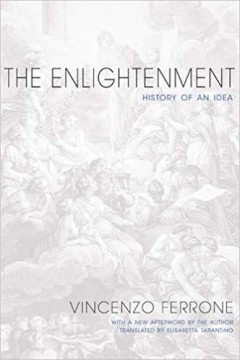
The Enlightenment: History of an Idea
In this concise and powerful book, one of the world's leading historians of the Enlightenment provides a bracing and clarifying new interpretation of this watershed period. Arguing that philosophical and historical interpretations of the era have long been hopelessly confused, Vincenzo Ferrone makes the case that it is only by separating these views and taking an approach grounded in social and…
- Edisi
- Updated Edition
- ISBN/ISSN
- 978-0-691-17576-8
- Deskripsi Fisik
- xvi + 216 pg.; 23,5 cm.
- Judul Seri
- -
- No. Panggil
- 001.09033 FER e
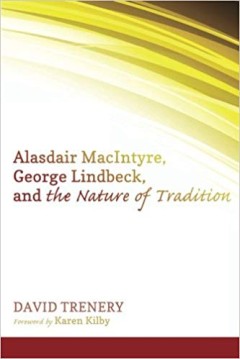
Alasdair MacIntyre, George Lindbeck and the Nature of Tradition
What should we believe, and why should we believe it? This book addresses these questions through a critical exposition of the work of the contemporary philosopher Alasdair MacIntyre and of the theologian George Lindbeck, the father of postliberal theology. The book argues that MacIntyre's philosophical development can be seen as a response to the question of how belief in a comprehensive metap…
- Edisi
- First Print
- ISBN/ISSN
- 978-1-62564-705-4
- Deskripsi Fisik
- xv + 270 pg.; 23 cm.
- Judul Seri
- -
- No. Panggil
- 146 TRE a
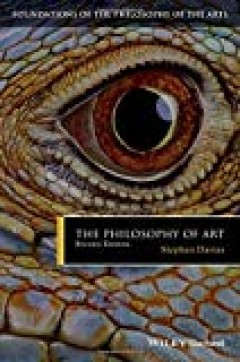
The Philosophy of Art
Written with clarity, wit, and rigor, The Philosophy of Art provides an incisive account of the core topics in the field. The first volume in the new Foundations of the Philosophy of the Arts series, designed to provide crisp introductions to the fundamental general questions about art, as well as to questions about the several arts (such as literature, music or painting). Present…
- Edisi
- Second Edition
- ISBN/ISSN
- 978-1-119-09165-3
- Deskripsi Fisik
- ix + 232 pg.; ils.; 23 cm.
- Judul Seri
- Foundation of the Philosophy of the Arts
- No. Panggil
- 701 DAV p

20 Karya Filsafat Terbesar
Inilah buku tuntunan yang sangat bagus untuk memasuki 20 karya filsafat terbesar, terutama bagi Anda yang sama sekali yang tidak punya waktu untuk membaca karya-karyanya. James Garvey memberikan catatan pendahuluan dari buku-buku yang harus dibaca dari seluruh sejarah tulisan filsafat. Dari dialog-dialog Plato, melalui karya-karya Descartes, Locke, Berkeley, dan Hume, sampai ke tulisan-tulis…
- Edisi
- -
- ISBN/ISSN
- 9789792122381
- Deskripsi Fisik
- xix + 348 hlm.; 19 cm.
- Judul Seri
- -
- No. Panggil
- 140 GAR d

Kamus Latin Indonesia
- Edisi
- Cetakan ke-1
- ISBN/ISSN
- -
- Deskripsi Fisik
- 1462 hlm.; 21 cm.
- Judul Seri
- -
- No. Panggil
- 473 VER k
- Edisi
- Cetakan ke-1
- ISBN/ISSN
- -
- Deskripsi Fisik
- 1462 hlm.; 21 cm.
- Judul Seri
- -
- No. Panggil
- 473 VER k

Kebatalan Perkawinan: Pelayan Hukum Gereja dalam Proses Menyatakan Kebatalan …
Buku ini diberi judul “Kebatalan Perkawinan” dan bukan “Pembatalan Perkawinan”, sebagaimana lazim didengar dalam pembicaraan atau didapati dalam tulisan tentang perkara perkawinan. Judul ini bermaksud untuk mengungkapkan hakikat arti tugas hakim Gereja dalam mengadili sebuah kasus perkawinan dalam proses untuk menyatakan kebatalan perkawinan. Dalam perkara menyatakan kebatalan perkawina…
- Edisi
- Cetakan ke-4
- ISBN/ISSN
- 978-979-21-3944-0
- Deskripsi Fisik
- 271 hlm.; 23 cm.
- Judul Seri
- -
- No. Panggil
- 262.9 AVA k
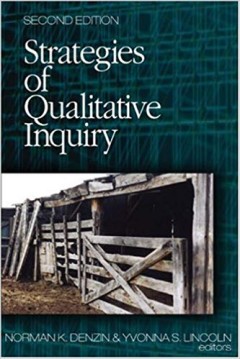
Strategies of Qualitive Inquiry
- Edisi
- Cetakan ke-4
- ISBN/ISSN
- 0-7619-1435-8
- Deskripsi Fisik
- xxii + 346 hlm.; 23 cm.
- Judul Seri
- -
- No. Panggil
- 300.72 STR s
- Edisi
- Cetakan ke-4
- ISBN/ISSN
- 0-7619-1435-8
- Deskripsi Fisik
- xxii + 346 hlm.; 23 cm.
- Judul Seri
- -
- No. Panggil
- 300.72 STR s

Collecting and Interpreting Qualitative Materials
- Edisi
- Cetakan ke-3
- ISBN/ISSN
- 0-7619-1434-X
- Deskripsi Fisik
- x + 462 hlm.; 23 cm.
- Judul Seri
- -
- No. Panggil
- 300.723 COL c
- Edisi
- Cetakan ke-3
- ISBN/ISSN
- 0-7619-1434-X
- Deskripsi Fisik
- x + 462 hlm.; 23 cm.
- Judul Seri
- -
- No. Panggil
- 300.723 COL c
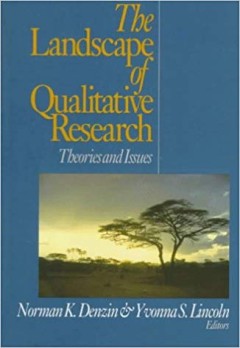
The Landscape of Qualittive Research
In this, the first of a three-volume paperback version of the landmark Handbook of Qualitative Research, editors Norman K Denzin and Yvonna S Lincoln survey the field of qualitative research from a wide-ranging theoretical perspective. Part One locates the field, providing historical context as well as background on applied qualitative research, the `self′ and the `other′, and the politics …
- Edisi
- Cetakan ke-1
- ISBN/ISSN
- 0-7619-1433-1
- Deskripsi Fisik
- x + 470 hlm.; 23 cm.
- Judul Seri
- -
- No. Panggil
- 300.72 LAN l
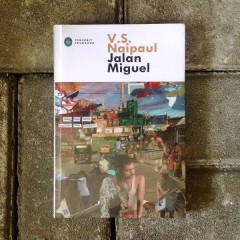
Jalan Miguel
- Edisi
- Cetakan ke-1
- ISBN/ISSN
- 978-602-50034-1-7
- Deskripsi Fisik
- vi + 280 hlm.; 19 cm.
- Judul Seri
- -
- No. Panggil
- 813.308 NAI j
- Edisi
- Cetakan ke-1
- ISBN/ISSN
- 978-602-50034-1-7
- Deskripsi Fisik
- vi + 280 hlm.; 19 cm.
- Judul Seri
- -
- No. Panggil
- 813.308 NAI j
 Karya Umum
Karya Umum  Filsafat
Filsafat  Agama
Agama  Ilmu-ilmu Sosial
Ilmu-ilmu Sosial  Bahasa
Bahasa  Ilmu-ilmu Murni
Ilmu-ilmu Murni  Ilmu-ilmu Terapan
Ilmu-ilmu Terapan  Kesenian, Hiburan, dan Olahraga
Kesenian, Hiburan, dan Olahraga  Kesusastraan
Kesusastraan  Geografi dan Sejarah
Geografi dan Sejarah